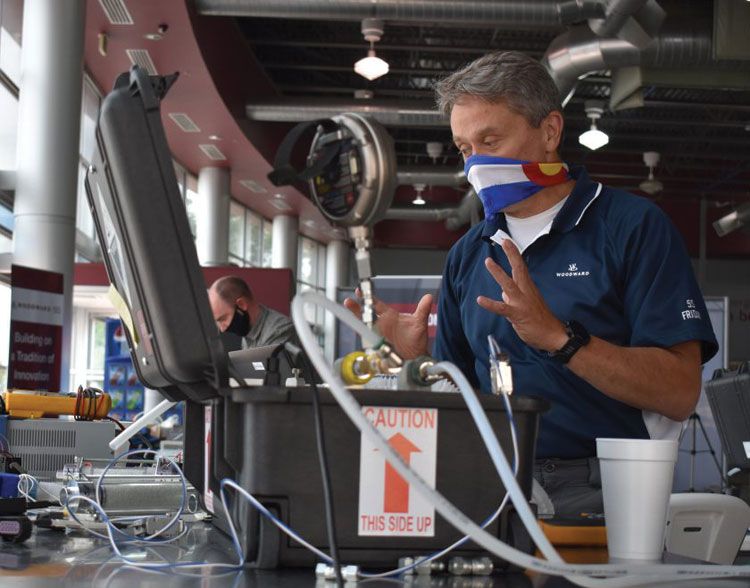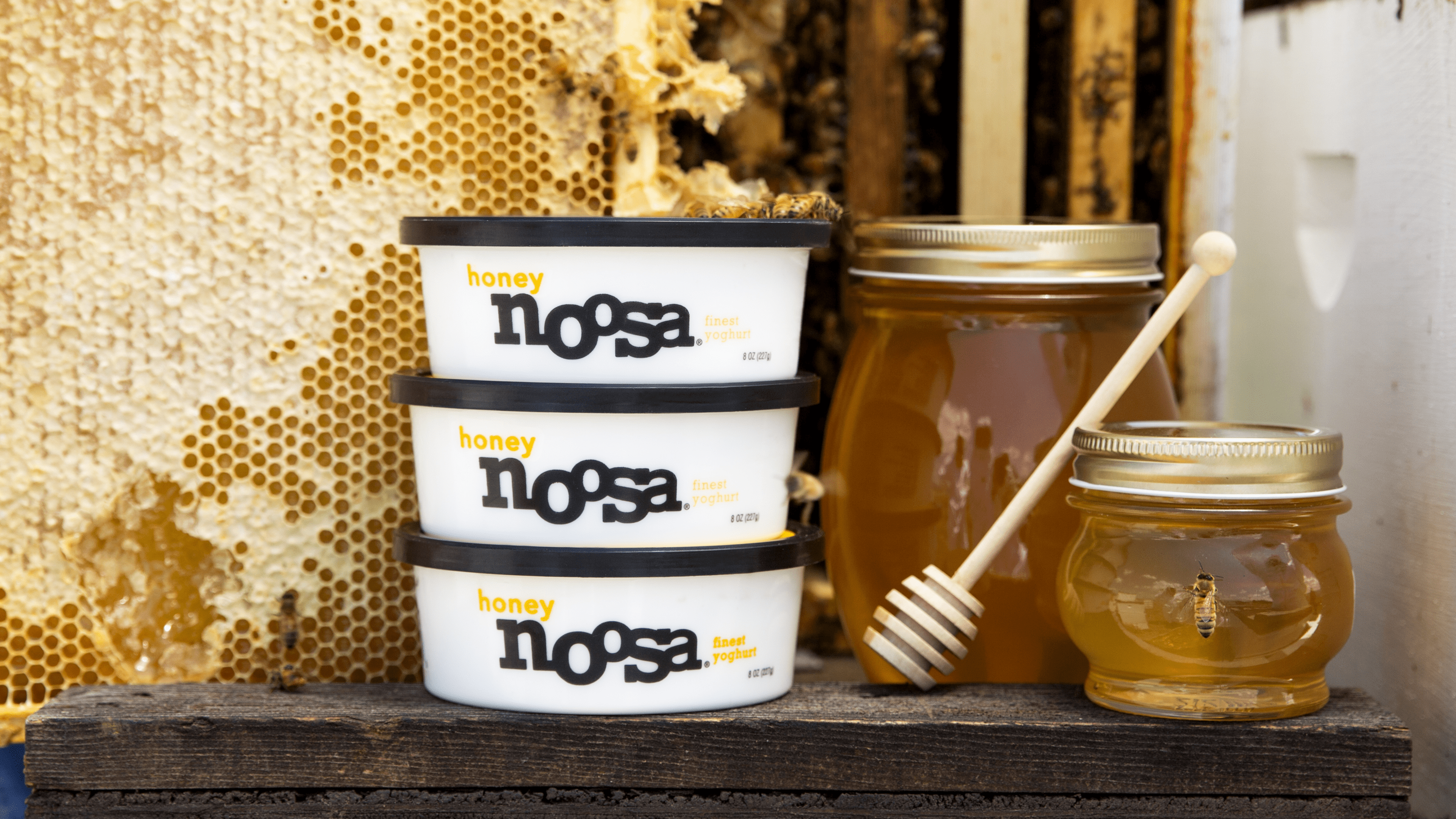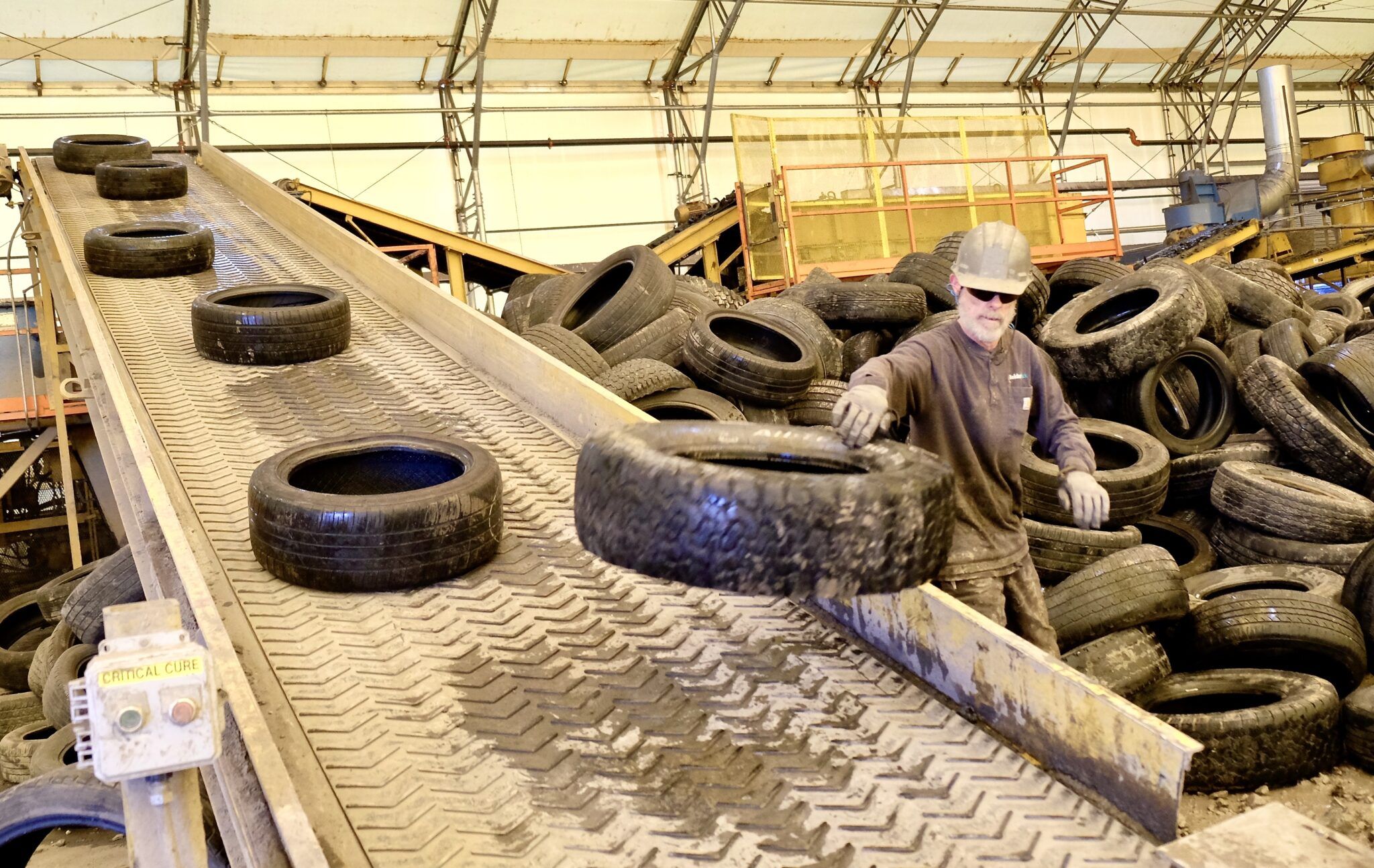COVID-19: A rundown of local research

The race to develop new tests, treatments and vaccines for COVID-19 might just be the largest global effort in modern scientific history, and some of that research is happening in our backyards.
Six months after the first case was discovered in Colorado, several private and public-sector groups in the Northern Colorado and Boulder Valley region have joined the push to put an end to the pandemic. The following is a rundown of their efforts so far:
Colorado State University
Colorado State University is well-suited toward researching COVID-19 because of its existing expertise on zoologic epidemiology, or the study of diseases that spread from humans to animals.
Four lab teams are working on vaccines within CSU, looking to repurpose existing vaccines against tuberculosis and smallpox, along with one derived from a modified version of a bacterium found in yogurt.
So far, federal agencies have given one team $3.8 million to repurpose a platform that deactivates viruses in blood samples to deactivate COVID-19. The idea is to transfuse the blood into a patient, whose immune system would learn how to create antibodies against the virus.
Additionally, a group of CSU scientists have licensed an RNA virus testing platform to Boulder startup EdoCeo Devices.
University of Colorado-Boulder
CU-Boulder researchers at the BioFrontiers Institute have also been building COVID tests and treatments. One project from that center is a spit-operated COVID test that doesn’t require invasive nose swabs and provides results in 45 minutes. It was spun off into a private company, Darwin Biosciences, in July.
Meanwhile, fellow CU spinoff company VitriVax is developing vaccine manufacturing processes to make inoculations stable at relatively warmer temperatures. Most vaccines in use today must be held at freezing or near-freezing temperatures, making it more difficult to distribute them in areas without easy access to medical-grade refrigerators.
ACG Biologics
The Japanese contract-drug manufacturer doesn’t do any of its own clinical development but is contracted with Novavax Inc. (Nasdaq: NVAX) to produce a portion of that company’s vaccine currently under Phase II trials.
ACG purchased a Boulder drug plant previously owned by AstraZeneca PLC for $40 million this year and plans to have it up and fully running by April 2021, when Novavax believes its vaccine could become available for distribution. However, it’s unclear how much of the plant will be dedicated to making vaccine doses.
CordenPharma
Another contract-drugmaker, CordenPharma in Boulder, has been producing the portions of vaccines that make them release into human cells. It is working on behalf of Moderna Inc. (Nasdaq: MRNA), which is in the middle of Phase III trials for its vaccine candidate. The U.S. government has previously announced it will pay $1.5 billion for Moderna to produce 100 million doses of its vaccine if approved by drug regulators.
Biodesix
Boulder’s Biodesix pivoted from making lung cancer assays to COVID tests in May, partnering with Bio-Rad Laboratories Inc. (NYSE: BIO) to make viral and antibody tests available to the public under emergency use authorizations from regulators.
The tests are similar to the platform Biodesix uses to determine the specific genetic causes of lung cancer tumor within a patient.
Since then, the company has publicly announced partnerships to process tests on behalf of Boulder Community Health, Colorado State University and Major League Lacrosse.
Brickell Biotech
The Boulder-based Brickell Biotech Inc. (Nasdaq: BBI) was founded to advance treatments for excessive underarm sweating, but it’s agreed to co-develop a vaccine candidate in Japan for use in the Americas.
Brickell acquired some vaccine assets when it acquired the former clinical developer Vical Inc. in a reverse merger deal, allowing it to go public without an initial public offering. It also has ties to the Japanese pharmaceutical scene, with Kaken Pharmaceutical Co. Ltd. as its development partner on the underarm sweating treatment.
ARCA biopharma
ARCA biopharma Inc. (Nasdaq: ABIO) has asked drug regulators to allow it to start studies on whether its anti-blood clotting treatment candidate could be used to treat the inflammation that occurs in some particularly serious cases of COVID-19. The drug, AB201, has already passed Phase II tests for heart attack victims, which would allow it to get straight into Phase II/III combined trials later this year.
Mbio Diagnostics
Mbio Diagnostics Inc. built a rapid-result test using U.S. Department of Defense funding that searches for the presence of a specific inflammatory protein found often in patients who have extreme and life-threatening reactions to COVID-19. It differs from the majority of COVID tests that search for the presence of the disease’s RNA in a sample.
Mbio submitted the test to defense agencies before it merged with Brava Diagnostics in August.
Bolder Biotechnology
The seven-person outfit that is Bolder Biotechnology Inc. said in late August that its multiple sclerosis treatment candidate worked as an inhibitor of COVID-19 growth in laboratory settings.
The drug candidate is an interferon, which spurs a patient’s immune system to produce antibodies and proteins to fight viral infections. Interferons have been used in treatments to fight inflammation caused by AIDS, hepatitis C and some types of cancer, but the National Institutes of Health recommends against using interferons against severe cases of COVID-19 because it tends to intensify flu-like symptoms in critical-care patients.
New Iridium
Another small Boulder outfit, New Iridium Inc. was given a $256,000 grant from the National Science Foundation in July to develop faster ways to synthesize Remdesivir, the first FDA-approved treatment for severe cases of COVID-19.
Woodward
While several companies across Colorado pivoted to making masks, face shields and other personal protective equipment in the wake of the pandemic, aerospace parts maker Woodward Inc. (Nasdaq: WWD) pivoted to making ventilators, the forced-breathing machines that were in short supply in intensive-care units across the world.
Woodward’s engineers took existing designs for four-stroke engines used by small, non-jet planes to replicate the forced introduction of air into a lung chamber, similar to how air and fuel are combined into the cylinders of an internal combustion engine.
While the design is being built for COVID-19-specific patients, Woodward believes the designs can be tweaked and built at scale quickly in the event of another large-scale respiratory disease outbreak in the future.
The race to develop new tests, treatments and vaccines for COVID-19 might just be the largest global effort in modern scientific history, and some of that research is happening in our backyards.
Six months after the first case was discovered in Colorado, several private and public-sector groups in the Northern Colorado and Boulder Valley region have joined the push to put an end to the pandemic. The following is a rundown of their efforts so far:
Colorado State University
Colorado State University is well-suited toward researching COVID-19 because of its existing expertise on zoologic epidemiology,…
THIS ARTICLE IS FOR SUBSCRIBERS ONLY
Continue reading for less than $3 per week!
Get a month of award-winning local business news, trends and insights
Access award-winning content today!




